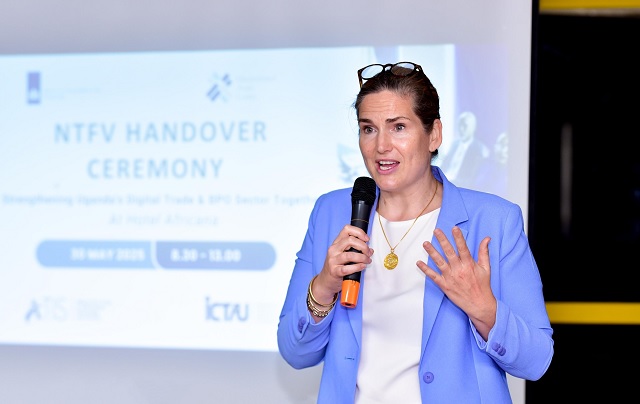Tech and Communication
Uganda’s Tech Talent Poised to Bridge Europe’s Human Capital Gap
Europe is increasingly looking to African nations like Uganda to address its growing human capital deficit, a demographic shift fueled by an ageing population. This trend presents significant opportunities for Uganda’s burgeoning IT sector, offering a pathway for its young, dynamic workforce to access lucrative international markets. However, capitalising on these prospects hinges on Uganda’s ability to elevate its IT service and product standards to compete effectively with regional peers, according to the International Trade Centre (ITC).
Frederieke Quispel, the Ambassador of the Netherlands to Uganda, highlighted the striking parallels between the two nations as predominantly agricultural economies. Yet, a crucial distinction lies in their demographics: Uganda boasts one of the world’s youngest and fastest-growing populations, while the Netherlands faces stagnating numbers and an ageing society. “This is an opportunity that Ugandan young IT professionals can seize,” Ambassador Quispel stated, although she noted that Uganda’s IT sector appears to be developing at a slower pace compared to other African countries, such as Kenya.
Ambassador Quispel’s remarks were made at the recent handover of the Netherlands Trust Fund for Viable Trade (NTFV) program to the Alliance for Trade in Information Services (ATIS) and the ICT Association of Uganda (ICTAU). The five-year Dutch government-supported initiative, which concluded on Friday, aimed to bolster Uganda’s ICT sector by supporting startups and Micro, Small, and Medium-scale Enterprises (MSMEs) in accessing export markets.
Since its launch in 2021, the NTFV project has yielded impressive results, creating at least 1,596 direct jobs, generating an increase of $14.5 million (approximately UGX 52 billion) in attributed export earnings, and attracting $12.3 million (UGX 44.6 billion) in investments. Ambassador Quispel lauded these “great achievements” and urged the successor organisations to prioritise the program’s sustainability, emphasising that reliance on donations cannot be a permanent solution.
Grace Achire, Vice Chairperson of ATIS, underscored the program’s vital role in facilitating the export of Ugandan services, citing the nation’s inherent potential and advantages, including widespread English proficiency. While recent reports indicate Uganda has slipped to fifth place in English speaking proficiency among African nations (behind South Africa, Kenya, Nigeria, and Ghana), potentially impacting certain opportunities, Achire remains optimistic. She highlighted the significant demand for younger professionals in Western economies to support their economic growth, citing Germany’s employment gap of 140,000 people. ATIS, she affirmed, will concentrate on positioning Uganda as a prime destination for those seeking young, tech-savvy individuals.
The handover event, themed “Unlocking IT Potential: Standards and Certifications for Uganda’s ITES/BPO Sector,” also celebrated a significant milestone: 15 Ugandan IT companies received international standardisation recognition (ISO Certification). This crucial achievement means these companies are now globally recognised and can be contacted by clients worldwide. The adoption of IT standards and international certifications, such as ISO 30105, is expected to propel Uganda’s Information Technology Enabled Services (ITES) and Business Process Outsourcing (BPO) sectors to new heights.
John Ndabarasa, Startup Growth Lead on the NTFV and FastTrackTech Africa Projects at the UN International Trade Centre, explained that the program focused on building the capacity of startups to access international markets and attract scaling capital. Patrick Kagenda, Chairman of ATIS and proprietor of Data Care, a partner company involved in beneficiary identification and training, proudly shared that some program beneficiaries have already successfully entered markets within the region and as far afield as Japan, a testament to the immense potential of Ugandan IT professionals.
With strategic investment in standards and robust support for its vibrant young talent, Uganda is well-positioned to become a key player in bridging Europe’s human capital gap, transforming a demographic challenge into a significant economic opportunity.
Comments



























